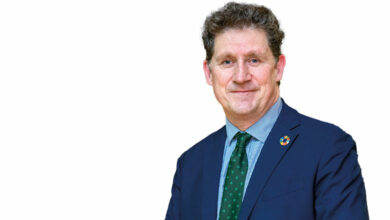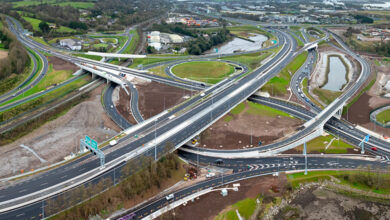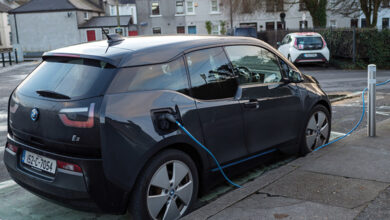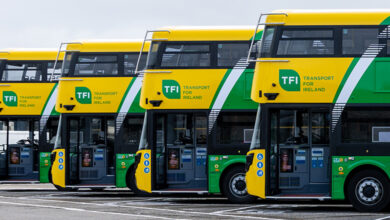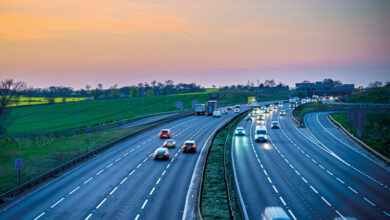The next decade will challenge our thinking and behaviour on transport
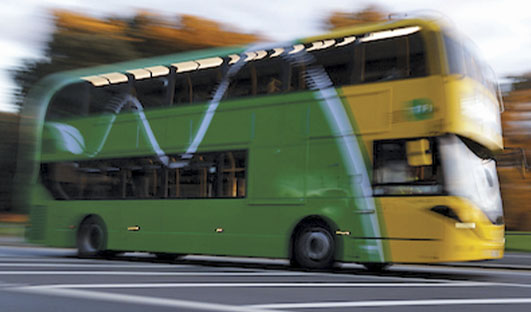
Dublin is a vibrant city with many natural advantages as a location which make it attractive for people to visit, live in, work in, and build their lives around. I know this only too well myself because 26 years ago, I moved from Romania to start a new life and career in Dublin, writes Sorin Costica, Head of Operations for Dublin Bus.
We have vibrant communities, a robust economy and a unique spirit and sense of humour in our city. This is a source of tremendous pride for us all in the capital, especially for Romanian Dubs!
The results are plain to see. We have bounced back from the ravages of a global pandemic. We now have busy shopping streets, buzzing restaurants and bars where record numbers of visitors receive a world‐renowned welcome from the locals.
We have newly constructed office buildings designed by award‐winning architects and they are slowly filling with people who have travelled from dozens of different countries to live and work here, often following significant investment by global businesses eager to invest in a progressive and competitive city.
Dublin’s success, however, has placed significant pressure on services and infrastructure and, as a result, on quality of life. Congestion, long commutes, and increased vehicle emissions are symptoms of these problems.
We speak often, as a city and as a society, about sustainability, but Dublin’s current path is not sustainable. It is clear that, without new thinking and new behaviour, the fruits of the success we have worked so hard to grow risk becoming the causes of failure.
Buses are vital to sustain urban growth
Buses represent one of the best forms of transport to meet Dublin’s needs into the future. They are flexible to demand, relatively low‐cost and the most adaptable to a city with a low‐density sprawl such as Dublin. Buses can be deployed quickly and can increase the overall capacity of the system more rapidly than any other modes of transport. Designing the city to the benefit of public transport users will provide benefits for all. It will ease congestion, reduce pollution and emissions and lead to much greater consistency and predictability of journey times.
As the city develops, it is of critical importance that bus infrastructure is ready as new housing is delivered. All our experience shows that pre‐planning bus services engenders good transport habits when people move into an area. This means we will have to persistently increase the capacity of the system as the city grows.
This is what the National Transport Authority’s (NTA) BusConnects network project is designed to do. Dublin Bus has played a leading role in delivering three phases of the Network Redesign project and will in the coming months deliver phases four and five. I’m proud of our role in assisting the NTA with BusConnects but elements of this project can be implemented more quickly. High quality 24/7 bus services are needed to deliver a truly all-day and all-night city. The broader economic and social needs of the city justify accelerating the introduction of 24/7 services on Routes such as 46a, 155 and others. This will allow operators and customers to build on the success of 24/7 Routes 15, 39a, 41, C5, and C6.
We are doing this to help the city now and to ensure its sustainable growth into the future. One obvious initiative which can deliver tangible benefits in both the short term and longer term is to engender sustainable mobility habits in young people. Encouraging public transport use as the default option will result in better carbon management habits by 2030. Policymakers could and should embrace the concept of making public transport free to all users under the age of 18. This would represent a short‐term financial cost but should be considered an investment that will deliver a handsome return to society. It would provide a terrific incentive for a new generation of environmentally conscious consumers.
Investment is only one part of the puzzle. Dublin’s population is due to increase by more than 400,000 before 2040. The competition for public space will grow more intense. Residential space, business space, road space for pedestrians, bus users, Luas users and private cars will be at a premium. The rate of growth of the city is going to create the dynamic where we will have to make difficult choices. In that context, the city’s relationship with the private car, especially those with internal combustion engines and diesels, will have to change. The status quo can’t continue. It is impossible to resolve our congestion issues unless we embrace new concepts such as active demand management of accessing the city. Now is the time to generate a consensus around this issue.
Demand management
Demand management involves taking active steps to either restrict or apply some form of charge to private car movements. It can take the form of congestion charges, outright bans on cars for certain places, parking levies or restricting access to city corridors based on air quality or carbon emission grounds. Measures like this will be necessary in the coming years. This is not out of any desire to punish car drivers but because there is a growing realisation that without drastic action, the city will become unmanageable, and both the economy and environment will suffer.
What is certain is that any efforts to introduce this must be well‐planned and those affected given alternative options, but it is time to start that conversation and to try to build a social consensus around the right approach. We can all accept the status quo is not working, but as a city, we also need to take the time now to drive a consensus behind what can be, and is, workable for the city. As custodians of the city’s public transport needs, we want Dublin and its people to thrive.
Merging technology and transport
As someone who grew up in a village served by only one bus an hour, punctuality and reliability were must haves, or the bus was gone. Over the past 30 years Dublin Bus has consistently adopted technology like RTPI to ensure that reliability, frequency, and punctuality are core elements of the customer experience. Going forward the ability to easily pay for and use public transport will be essential if we are to attract people towards public transport and away from private car.
Similar to other sectors, technology is changing the way transport services are provided to customers, which in turn is also enabling changes to the business models of traditional service providers like Dublin Bus.
The availability of unlimited data and the widespread use of mobile phones enables us to deliver a greatly enhanced customer experience. Harnessing this technology and using it to develop new, innovative services is a key part of the company’s vision to become the delivery partner of choice for state and private partners. The benefits include enhanced urban living opportunities, reduced congestion, improved air quality and reduced noise pollution. A better Dublin and a better public transport system. That’s the prize for us all.

W: www.dublinbus.ie
Twitter: dublinbusnews

